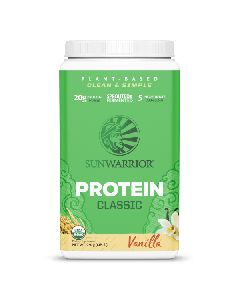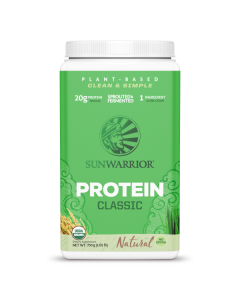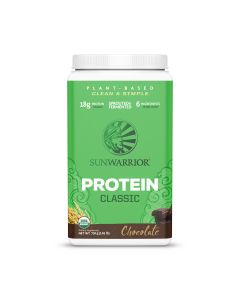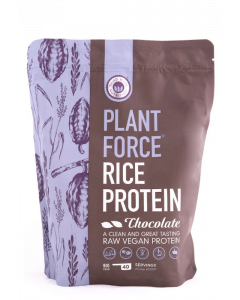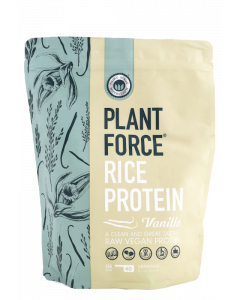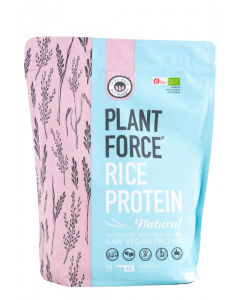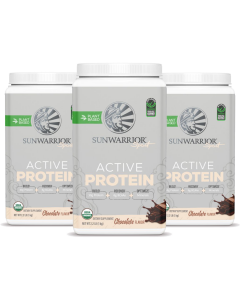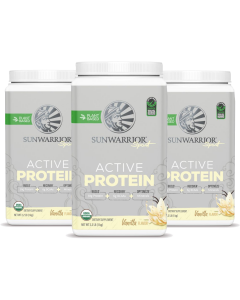- Shipped today!
- Free shipping from € 45
- Postpay possibility
- Review score 9.4
- Earn reward points
- Shipped today!
- Free shipping from € 45
- Postpay possibility
- Review score 9.4
- Earn reward points
- Home
- Sports & Nutrition
- Protein
- Vegan Protein
- Rice Protein

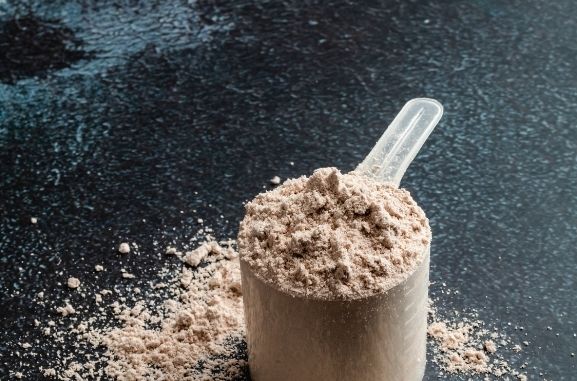
What is Rice Protein?
Protein provides the building blocks for all tissues, via its amino acid constituents. After intense training, our muscle needs to be repaired and rebuilt, as well as our connective tissue such as tendons and ligaments.
Rice protein provides a convenient, high-quality source of protein and essential amino acids. The rice grain is ground into a powder and enzymatically separates the protein from carbohydrates. This process removes compounds called “anti-nutrients” which would otherwise impede digestion and absorption (Source: NCBI). However, due to processing, there is an increase in the digestibility and essential amino acid concentration compared to rice consumed in wholefood form (Source: NCBI).
Key Health Aspects of Rice Protein
Consuming a plant-based diet can make it more difficult to meet protein requirements, although there are many benefits shown in research to consuming a high protein diet, where a rice protein supplement can contribute substantially. It’s hard to find rice protein that checks all the boxes….
- Easy to digest
- Vegan
- Tastes great, mixes well
- Free of tungsten (Only Plantforce)High in protein-to-weight ratio
- Gluten, soy & dairy free.
- No artificial sweetener, fillers or unnecessary ingredients.
- Compact and portable source of high-quality protein.
- Can be as good as whey for stimulating muscle growth (Source: NCBI)
How is Rice Protein made?
In a delicate and efficient process, organically-grown rice is ground up. The amino acid chains are then isolated from the starch through the use of enzymes. This provides an impactful powder of protein isolate.
Is Rice Protein vegan?
Yes! Rice protein is a completely plantbased source of protein suitable for vegetarians and vegans.
Plant-based protein sources can often times be a source of confusion. Looking at the research, both animal and human research, it has been demonstrated plant-based proteins can be as effective as animal proteins (when leucine is matched) in stimulating the muscle-building machinery (Source: NCBI & NCBI).
Appetite
Protein is the most satiating macronutrient, meaning if you consumed 100g of fat, carbohydrate and protein at three independent sittings and rated your hunger score after, protein would leave you feeling most full. It works predominantly by delaying stomach emptying and the hormonal response and message back to the brain because of this is one that suppresses hunger.
- Helps manage hunger, meaning a quicker sense of fullness (Source: NCBI)
Muscle Mass
We all know protein has a major role to play in muscle, however what most people don’t know is muscle/protein turnover is not something that starts and stops, rather it is an ongoing phenomenon. In other words, our bodies are constantly breaking down damaged or old protein and synthesizing new stronger structures with the amino acids/protein provided by the diet. We cannot build a wall without bricks, same goes for building muscle without high-quality protein. This is where rice protein can elicit its effects.
- Helps preserve muscle mass, especially during low-calorie intake (Source: NCBI)
- Helps with shedding pounds (Source: NCBI)
- Helps with building muscle (Source: NCBI)
- Preservation of muscle when ill or injured (Source: NCBI)
Overall our rice protein provides a high-quality convenient source of protein that mixes well and tastes great.

